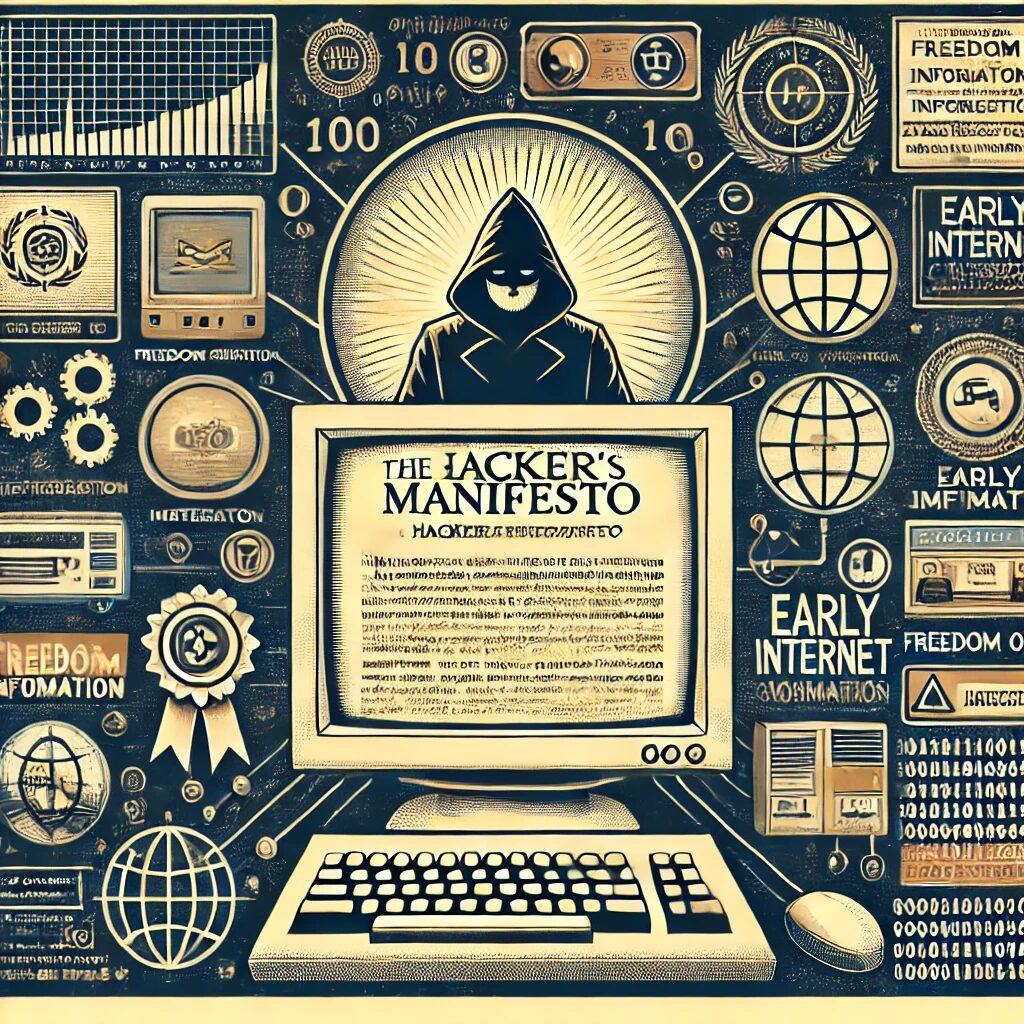Introduction
In the early days of the internet, a seminal document known as “The Hacker’s Manifesto” was written by Loyd Blankenship, also known as The Mentor. This document, officially titled “The Conscience of a Hacker,” was published in the hacker magazine Phrack in January 1986. It has since become a cornerstone of hacker culture, providing a philosophical foundation for countless individuals drawn to the burgeoning world of cyberspace.
The Origins of “The Hacker’s Manifesto”
“The Hacker’s Manifesto” was written in response to The Mentor’s arrest, reflecting his thoughts and feelings about hacking and the treatment of hackers by society. It captures the mindset of a young hacker, disillusioned with the conventional path laid out by society, yet finding a sense of belonging and purpose in the digital realm.
“We explore… and you call us criminals. We seek after knowledge… and you call us criminals. We exist without skin color, without nationality, without religious bias… and you call us criminals. You build atomic bombs, you wage wars, you murder, cheat, and lie to us and try to make us believe it’s for our own good, yet we’re the criminals.”- The Hacker’s Manifesto, 1986
Impact on Early Internet Culture
The manifesto resonated deeply within the hacker community and beyond. It articulated a sense of identity and purpose for many young, intelligent individuals who felt alienated from mainstream society. The document emphasized the pursuit of knowledge, freedom of information, and the breaking down of barriers—principles that became central to early internet culture.
This ethos of exploration and information sharing laid the groundwork for the development of open-source software and collaborative projects that define much of today’s internet. Early hacker culture, influenced by the manifesto, played a crucial role in the creation and proliferation of technologies and platforms that promote free and open access to information.
Legacy and Continuing Influence
Decades after its publication, “The Hacker’s Manifesto” continues to inspire and influence both the hacker community and the broader tech industry. Its message of curiosity, non-conformity, and the ethical pursuit of knowledge remains relevant as society grapples with issues of privacy, security, and the digital divide.
The manifesto’s call for a world without boundaries, where individuals are judged by their contributions rather than superficial attributes, is echoed in contemporary discussions about diversity and inclusion in tech. Moreover, the hacker spirit of innovation and problem-solving is celebrated in modern hacker spaces, coding bootcamps, and tech startups.
Conclusion
“The Hacker’s Manifesto” is more than just a historical document; it is a testament to the enduring power of ideas. Its impact on early internet culture and its ongoing relevance highlight the importance of understanding the motivations and philosophies that drive technological advancement. As we continue to navigate the complexities of the digital age, the manifesto’s vision of a world united by the quest for knowledge remains a powerful and inspiring ideal.




